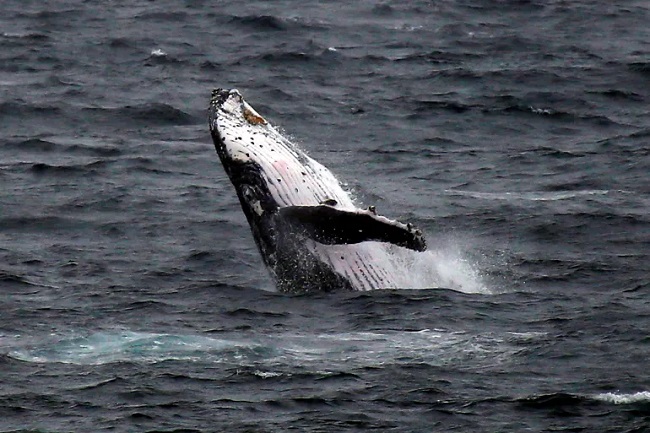The Country Director of Wildlife Conservative Society, Andrew Dunn on Monday underscored the urgent need for Nigeria to strengthen relevant laws and policies aimed at curtailing illegal wildlife trade.
Dunn who spoke in Abuja during the Policy Dialogue on the ‘Endangered Species Conservation and Protection Bill, 2024’ which scaled through its first reading on the 28th March 2024, also tasked relevant security agencies to strengthen their operations in curtailing the activities of wildlife traffickers.
He said: “I think that’s why we’re meeting here today. So Nigeria has always had an endangered species decree, but it was all out of date. It was time for review. The penalties were outdated.
“So, with events like this today, our legislation can be stronger. And with strong legislation work, make sure law enforcement is more effective because we know law enforcement in the country, unfortunately, is not as effective as it should be to make sure we don’t lose any more endangered species.”
When asked about the country’s global ranking/available statistics, Dunn said: “Nigeria, unfortunately, is the leading clear in the illegal wildlife trade. So just in the last one, two weeks, there was a big container of elephant ivory, seized in Vietnam. That elephant ivory had come from Lagos had come from Nigeria so those elephants have unfortunately come from outside of Nigeria probably from Central Africa.
“So Nigeria is being used as a hook for the illegal wildlife trade. So this reviewed endangered species decree will help stop this and will give the tools for Customs and Nigeria to enforce the legislation more effectively.
“We need to have a quality measure in our laws. Yes, for sure we need to protect wildlife. We need to make sure our national parks are effectively protected and the National Park agencies like the National Park Service a properly funded,” he stressed.
On his part, Deputy Chairman, House Committee on Environment, Hon. Terseer Ugbor applauded the contributions of the UK Illegal Wildlife Trade Challenge Fund, the US State Department – Bureau of International Narcotics and Law Enforcement Affairs, and the Pangolin Conservation Fund toward the development of the proposed legislation.
Hon. Ugbor who sponsored the bill observed that Biodiversity is particularly threatened by the actions of wildlife criminals, as illegal activities like poaching and smuggling are a major sabotage to our economy.
“Experts refer to the triple-planetary crisis of climate change, pollution and biodiversity loss which together threaten environmental sustainability, economic development and community wellbeing. Biodiversity is particularly threatened by the actions of wildlife criminals, as illegal activities like poaching and smuggling are a major sabotage to our economy.
“Wildlife crime also fosters corruption, facilitates insecurity and presents opportunities for the spread of zoonotic diseases such as COVID-19.
“Nigeria has emerged with the unenviable status as a global hub for wildlife trafficking in recent years and continues to be considered as one. Nigeria must therefore act swiftly and work to reverse this negative status and threat to our beautiful country and the world.
“The passage of this legislation will mark a major milestone for global conservation efforts and Nigeria’s international image, the passage of this bill will also advance the legislative agenda of the 10th House of Representatives for Nigeria’s environmental sustainability.”
According to him, the proposed bill seeks to “address threats to biodiversity in Nigeria and across Africa by providing a consistent and strong legal framework to put an end to wildlife trafficking. In doing this, it embodies recommendations made following a consultative and collaborative analysis of relevant Nigerian laws for addressing wildlife trafficking, undertaken by Shamini Jayanathan OBE, a criminal justice expert we will be hearing from today.
“Today’s event continues that consultative process by giving stakeholders the opportunity to reflect on the bill and the urgent need to ensure that Nigeria’s biodiversity is supported by a strong and comprehensive endangered species legislation.
“Nigeria is also a party to the Convention on International Trade in Endangered Species of Wild Fauna and Flora (CITES) obligating the strengthening of our legal framework for biodiversity conservation and this Bill seeks to give effect to those obligations.”
Hon. Ugbor who described the illegal activities of poachers and smugglers in Nigeria as major sabotage to our economy, underscored the need to take necessary action to end the ugly trend.
In his remarks, Country Representative of the United Nations Office on Drugs and Crime, Oliver Stolpe called for a review of Nigerian legislation to provide for stiffer penalties for those involved in trafficking in endangered species, adding that the current legal framework does not meet the threshold of the serious crime definition in the UN Convention against Transnational Organized Crime.
He said pending the adoption of the Bill, Nigerian law enforcement authorities cannot fully activate the provisions of the UN Convention on Transnational Organized Crimes (UNTOC) and cooperate effectively with their counterparts in countries of origin, transit and destination.
He said “the weaknesses of the current legal framework are exemplified in the minimal sentences handed down to wildlife crime perpetrators who have been prosecuted and convicted in the past year and a half, thanks in part to the assiduousness of the Nigeria Customs Service.
“The low penalties in the current legal framework are such that they can be discouraging to the dedicated intelligence-led investigations and prosecutions that have made these convictions possible. It is therefore an important milestone in Nigeria’s efforts to combat wildlife and forest crime that we are gathered at this policy dialogue to review the endangered species.
He stressed that the provisions of the Bill align with UNODC’s Guide on Drafting Legislation to Combat Wildlife Crime, saying “UNODC is particularly pleased to see the Increased penalties of up to 10 years imprisonment depending on the type of offence meeting now the threshold of the “serious offences” definition in the UNTOC; clear definition of individual offences and a comprehensive list of different types of wildlife crime and prohibitions on hunting, possession and trade of scheduled species”.
He said the National Assembly should review the approach taken to establishing criminal liability for an attempt in relation to the provisions of the Bill, with a view to ensuring a comprehensive and consistent approach to establishing liability while also including provisions in the law that will allow the Nigerian agencies collaborate with their international partners and other countries in combating trafficking in endangered species.
ALSO READ THESE TOP STORIES FROM TheWitness







